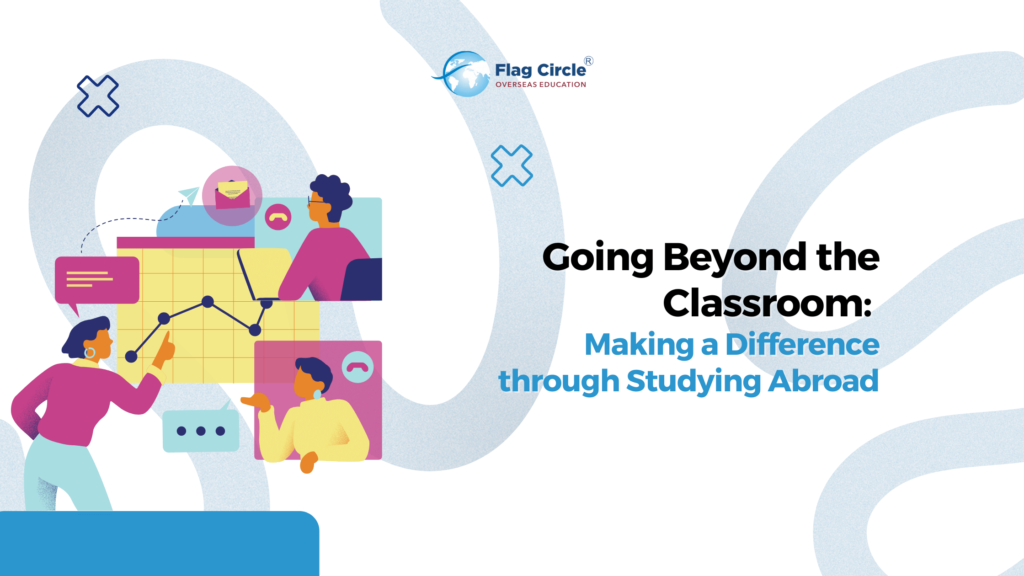Studying abroad with a purpose goes beyond academic pursuits; it involves integrating meaningful volunteer work or internships into your experience. This combination not only enhances your resume but also provides a unique opportunity to contribute to a community, gain practical skills, and foster personal growth. Here are some programs that allow students to combine academics with volunteer work or internships abroad, along with the benefits of gaining practical experience in a global setting with Information about fees:
1. Volunteering Programs Abroad:
A. Peace Corps:
- Location: Various countries.
- Duration: typically 27 months.
- Focus: The Peace Corps is a U.S. government program that sends volunteers abroad to work on projects related to education, health, community development, agriculture, and more.
B. International Volunteer HQ (IVHQ):
- Location: Multiple countries worldwide.
- Duration: Flexible, ranging from 1 week to 6 months.
- Focus: Offers a variety of volunteer programs, including teaching, childcare, healthcare, and environmental conservation.
Benefits of Volunteering Programs:
- Cultural Immersion: Engage with local communities and gain a deep understanding of the culture.
- Language Skills: Improve language skills through daily interactions with local residents.
- Personal Growth: Develop a sense of empathy, adaptability, and resilience.
2. Internship Programs Abroad:
A. Erasmus+ Internship Program:
- Location: European Union countries.
- Duration: 2 to 12 months.
- Focus: Provides opportunities for students to gain work experience in a European country related to their field of study.
B. AIESEC Global Talent Program:
- Location: Worldwide.
- Duration: 6 weeks to 18 months.
- Focus: Offers internships in various fields, fostering cross-cultural understanding and professional development.
Benefits of Internship Programs:
- Professional Development: Gain practical, hands-on experience in your field of study.
- Global Networking: Build a global professional network and establish connections with industry experts.
- Resume Enhancement: Enhance your resume with international work experience, making you more marketable to future employers.
3. Benefits of Gaining Practical Experience Abroad:
A. Cross-Cultural Competence:
- Exposure to different working styles and cultural norms enhances your ability to collaborate in diverse environments.
B. Global Perspective:
- Gain insights into global issues and challenges, broadening your understanding of the interconnected world.
C. Enhanced Problem-Solving Skills:
- Navigate unfamiliar situations and challenges, fostering adaptability and problem-solving skills.
D. Personal Growth:
- Develop resilience, independence, and self-confidence through navigating a new cultural and professional landscape.
E. Networking Opportunities:
- Establish connections with professionals and peers from around the world, expanding your global network.
F. Career Advancement:
- Stand out in the job market with international experience, demonstrating your ability to thrive in diverse settings.
4. Preparing for Volunteer Work or Internship Abroad:
A. Research:
- Thoroughly research the organization and program to ensure alignment with your goals.
B. Visa and Legal Requirements:
- Understand visa regulations and legal requirements for volunteering or interning in a specific country.
C. Language Skills:
- Develop basic language skills to facilitate communication in the workplace and local community.
D. Cultural Sensitivity Training:
- Participate in cultural sensitivity training to navigate cultural differences effectively.
5. Post-Experience Reflection:
A. Document Your Experience:
- Keep a journal, blog, or portfolio to document your experiences and reflections.
B. Network Maintenance:
- Stay connected with the people you meet during your volunteer or internship experience.
C. Apply Lessons Learned:
- Apply the skills and insights gained from your experience to your academic and professional lives.
6. Fees:
Internships:
- Internship Placement Agencies:
- Some organizations or agencies specialize in placing individuals in internships abroad. While these agencies may charge a placement or program fee, it’s crucial to carefully review the terms and understand what services are included.
Volunteering:
- Paid Volunteer Programs:
- Some volunteer programs, particularly those organized by larger international volunteering agencies, may have associated fees. These fees often cover accommodation, meals, program support, and other services.
- Local NGOs and Nonprofits:
- Volunteering directly with local NGOs or nonprofits may not require fees, especially if you are arranging the opportunity independently. However, you might need to cover your living expenses.
- Placement Organizations:
- Similar to internships, there are organizations that specialize in placing volunteers abroad. These organizations may charge fees for program coordination, support services, and accommodation.
Important Considerations:
- Transparency:
- Ensure that the organization or agency is transparent about any fees associated with the program. Review the terms and conditions before committing.
- What’s Included:
- Understand what services are covered by any fees, such as accommodation, meals, local support, and program coordination.
- Local Living Costs:
- If the program does not cover living expenses, consider the cost of living in the destination country and budget accordingly.
- Research and Reviews:
- Before committing to any program, research reviews and testimonials from previous participants to gauge the program’s credibility and value.
7. Language Proficiency Requirements (Bonus):
There are some internship opportunities abroad that may not require the IELTS (International English Language Testing System) or similar English language proficiency tests. The language requirements for internships can vary depending on the host organization, industry, and country. Some factors that may influence whether an internship requires an English proficiency test include:
- English-Speaking Countries:
- If you are applying for internships in countries where English is the primary language (e.g., the United States, Canada, Australia, or the United Kingdom), the host organization may have less stringent language requirements, especially if the work environment primarily uses English.
- Specific Industries:
- Certain industries or roles may have lower language proficiency requirements. Technical or specialized internships may prioritize skills related to the field over advanced English language proficiency.
- Networking and Recommendations:
- Personal connections or recommendations can sometimes play a significant role in securing internships. If you have strong networking connections, the host organization may be more flexible with language requirements.
- Short-Term Programs:
- Short-term internships, especially those focused on specific projects or tasks, may be more flexible with language requirements. The emphasis might be on the skills and qualifications related to the internship rather than language proficiency.
- Internship Placement Agencies:
- Some organizations specialize in placing individuals in internships abroad. While these agencies may charge a placement or program fee, they might be able to assist you in finding opportunities that align with your language proficiency.
- Local Language Skills:
- While IELTS may not be required, having basic proficiency in the local language can still be beneficial, depending on the destination. It can enhance your overall experience and communication with locals.
It’s essential to carefully review the internship postings and communicate directly with the host organization to understand their specific language requirements. If language proficiency is not explicitly mentioned, you can inquire about the language expectations during the application process.
Studying abroad with a purpose, whether through volunteering or internships, offers a rich and multifaceted experience that goes beyond traditional academic learning. It provides students with the opportunity to make a positive impact, gain practical skills, and contribute to their personal and professional growth in a global context.
Know more from the Experts at Flag Circle Overseas Education Consultants.




